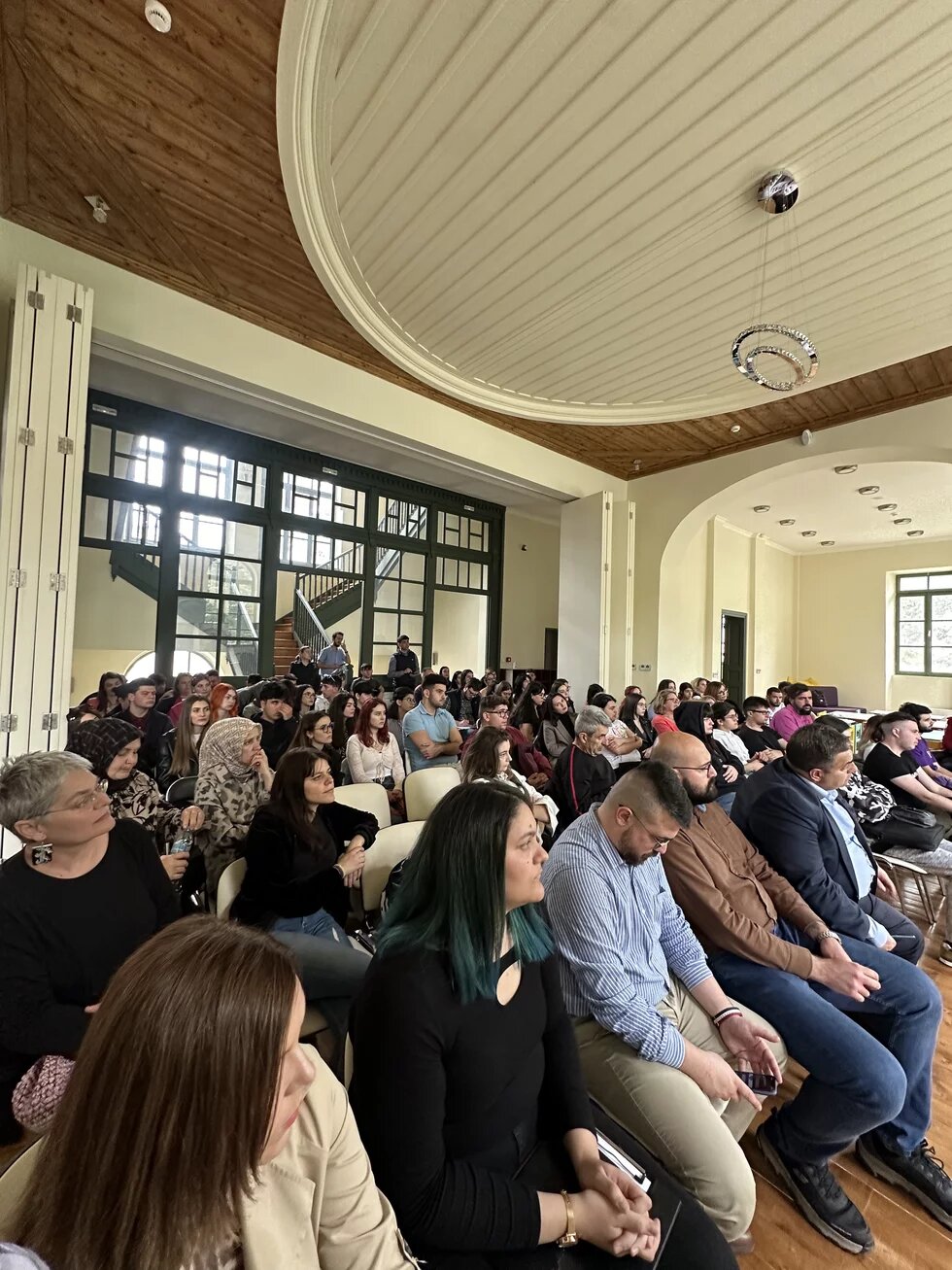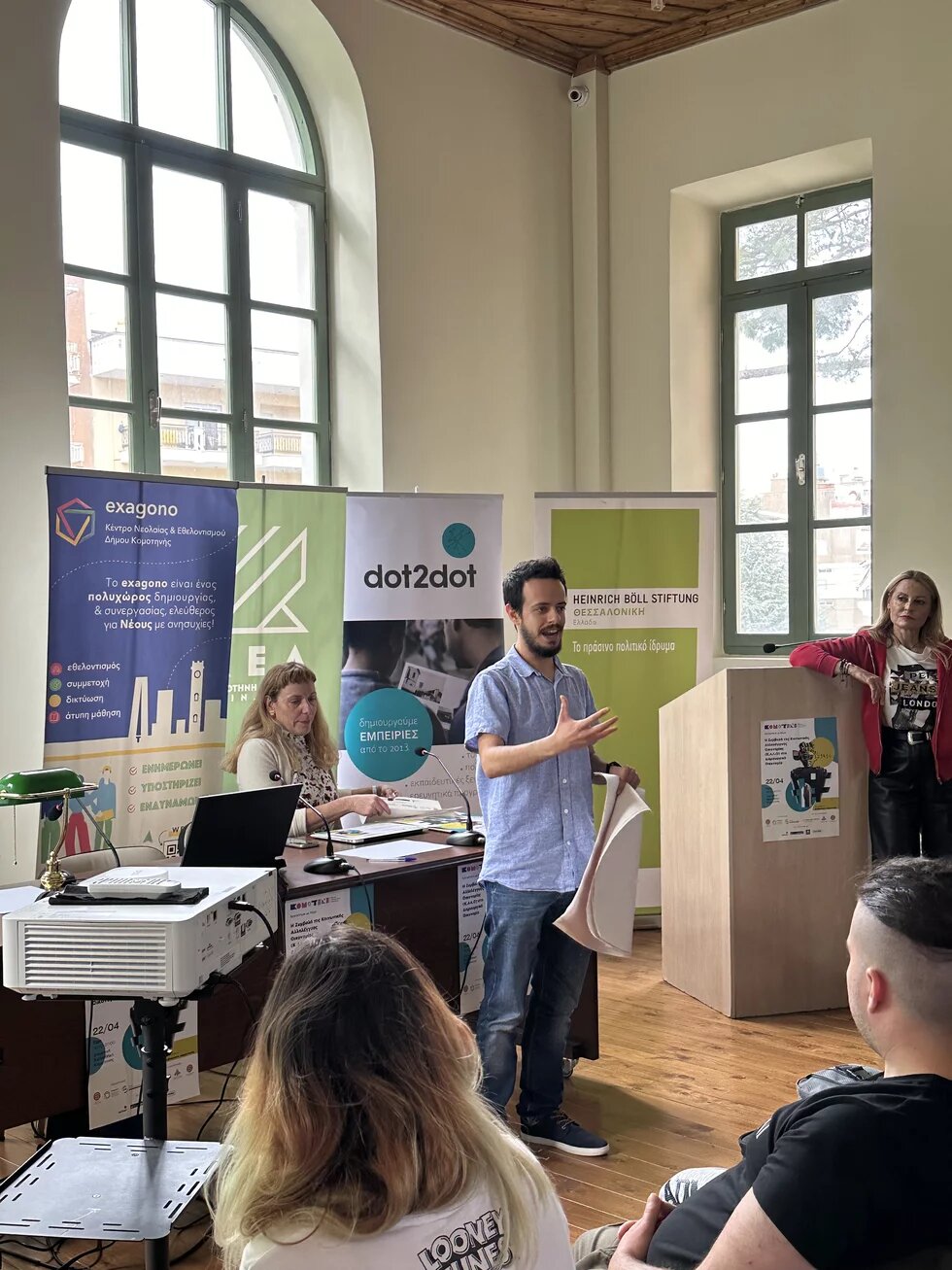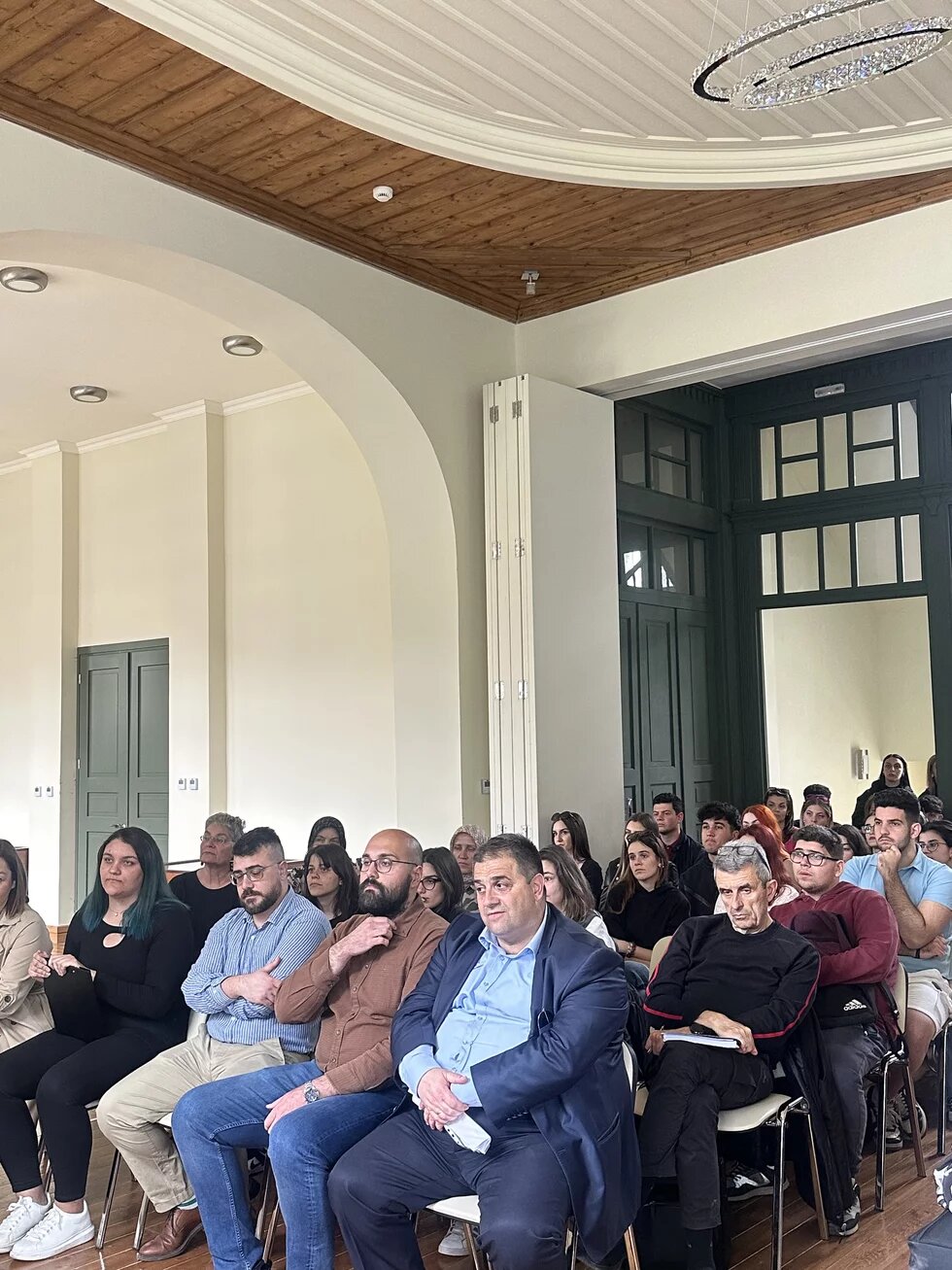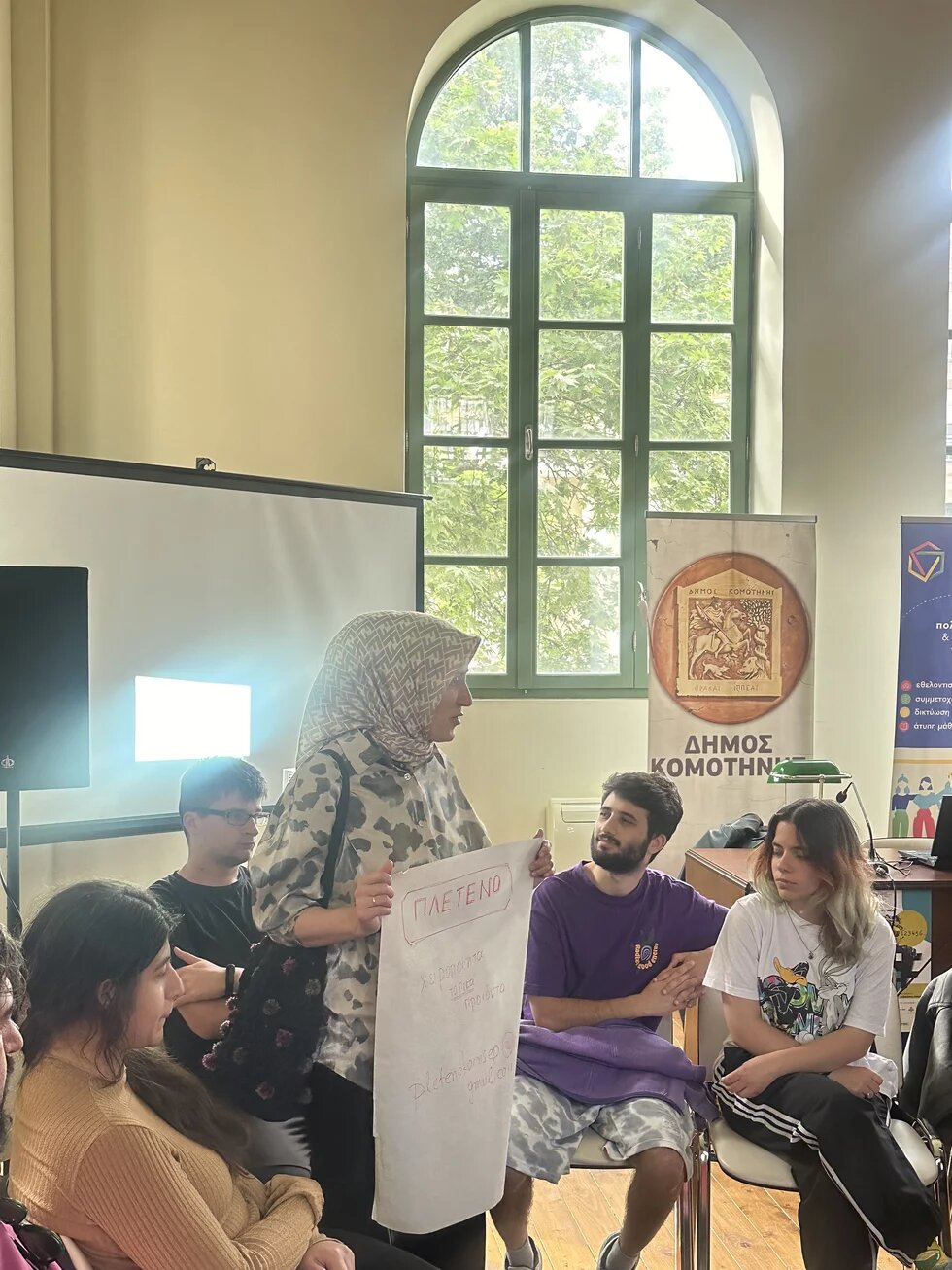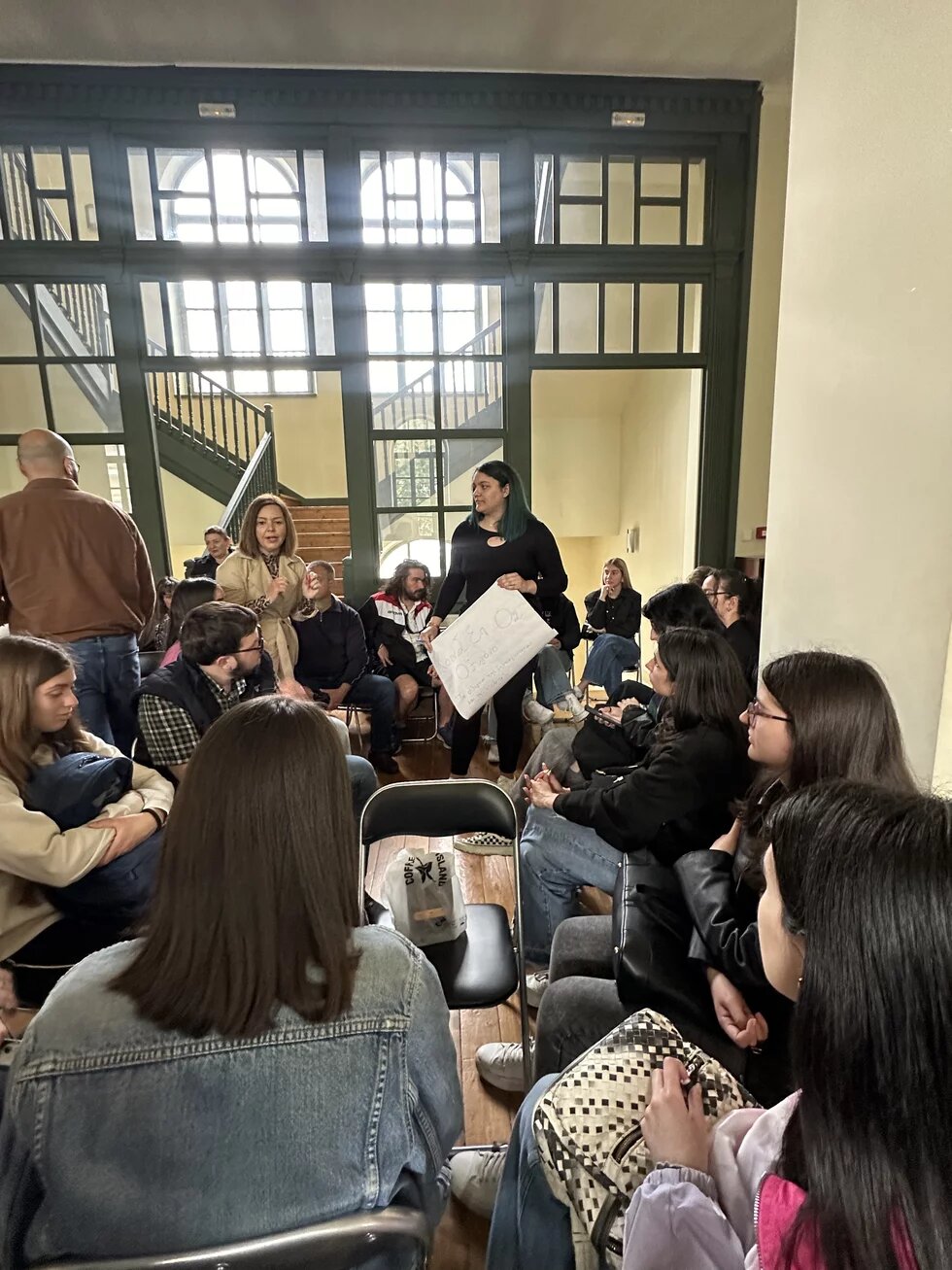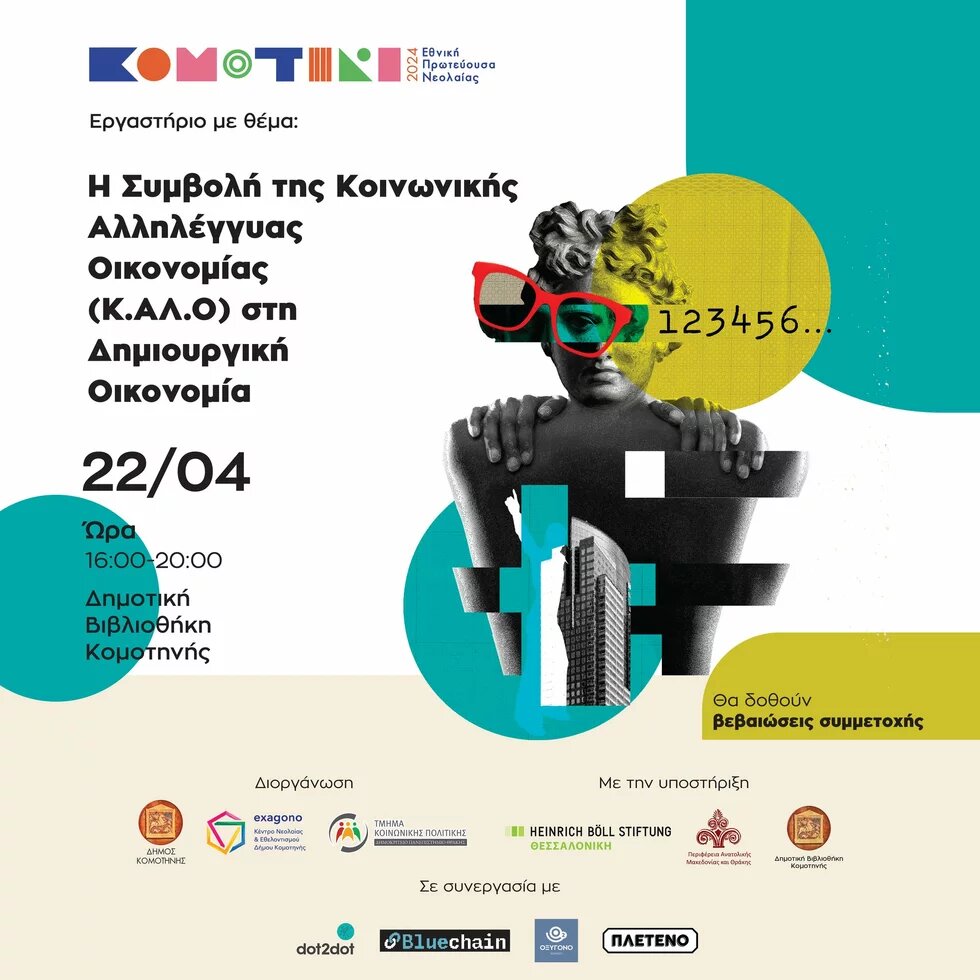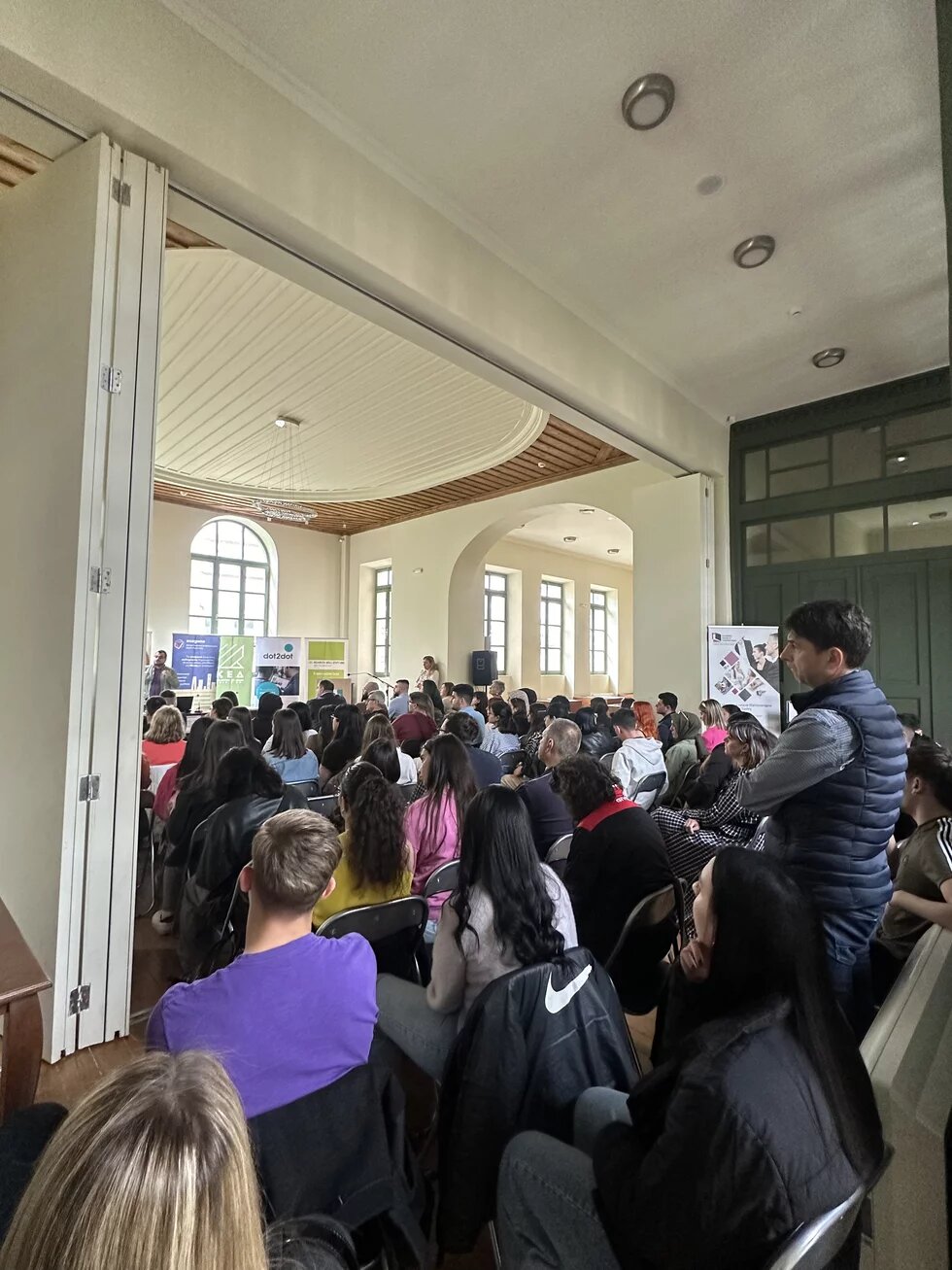
Yannis Charchantis conveys his experience from participating in the event “The Contribution of the Social Solidarity Economy to the creative economy,” which took place on Monday, April 22, 2024, at the Municipal Library of Komotini, as part of the National Youth Capital 2024 initiative. The event was organized by the Municipality of Komotini’s Youth and Volunteering Center “exagono”, the Department of Social Policy of Democritus University of Thrace, and the Municipality of Komotini, with the support of the Heinrich Böll Foundation – Thessaloniki Office.
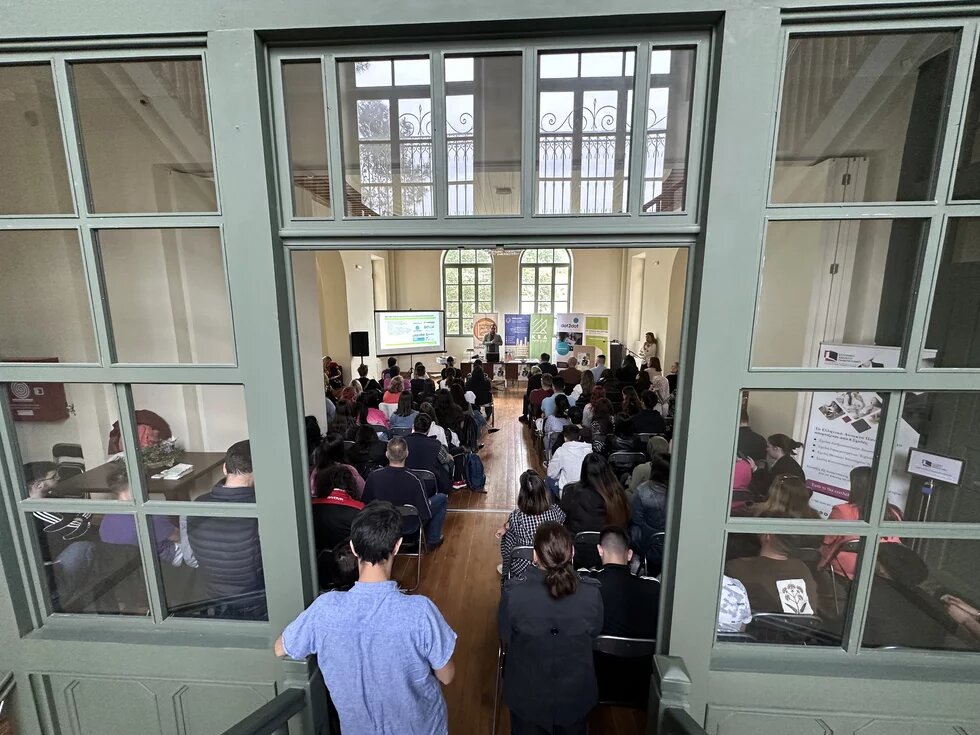
Being a member of a Social Cooperative Enterprise (SCE), I am often called upon to explain what a social enterprise is, why I chose to get involved in such an initiative, how it works, and why anyone would want to pursue something like that. So, when I was invited to participate as a workshop facilitator at an event aimed at informing young people in Komotini about the Social Solidarity Economy (SSE), I couldn’t do anything else but show up!
The event was titled “The Contribution of the Social Solidarity Economy to the Creative Economy”, and its goal was to familiarize the participants with the concept of the creative economy, to learn how SSE projects operate, and explore how these can be leveraged to support youth employment and contribute to the transformation of regional cities in terms of sustainability for young people.
At the Municipal Library, we were welcomed by Sofia Adam, Assistant Professor at the Department of Social Policy of the Democritus University of Thrace, and Louiza Saltsidou from the Municipality of Komotini’s Youth and Volunteering Center “exagono.” The two of them had taken on the task of introducing the local youth to the SSE, giving them stimuli to explore this not-so-well-known sector of the economy. And I believe they succeeded, judging by the number of participants and the level of interest with which they attended the event.
Sofia Adam emphasized that “the aim of this action is to create projects and efforts that make cities sustainable and provide employment opportunities”, adding that “we need to ask ourselves if there is a way to create solutions through the Social Solidarity Economy”. Louiza Saltsidou, on her part, noted that the broader development of SSE around the world has served as a vehicle for addressing social challenges, and she particularly highlighted the collaboration with the Department of Social Policy at DUTH (Democritus University of Thrace) on SSE-related topics.
Concluding the round of greetings, Alexandros Iosifidis, Deputy Regional Governor for Development, Entrepreneurship, Innovation, and Social Economy of the Region of Eastern Macedonia and Thrace, admitted that he previously had little contact with the SSE, however, he stated that he is now able to recognize how SSE projects can create opportunities for the younger generation to remain in Greece and find employment. He even commented that, since we are still quite behind in the development of SSE, there is ample room to take many more steps forward!
The real introduction to the topic was made by Giorgos Melissourgos from the Heinrich Böll Foundation, who explained the basic concepts of the SSE, gave examples of successful cooperative projects in the field of the creative economy, and referred to a new model of collaboration, that of the open cooperative. He specifically emphasized that open cooperatives and networks of agencies can offer multiple benefits to their members, such as shared marketing and financial management services, common workspaces, training opportunities, digital platforms, and more. He even concluded by stating that all these can be applied in Komotini as well, through a new collaborative makerspace that is planned to be created.
The workshop began with what is called a “human library”. Representatives participated in the event, from livelihood cooperative projects explained to the audience what their initiatives are about, how they operate in practice, and how decisions are made in these collective projects. Participating in this segment were the social cooperative enterprises Dot2Dot, BlueChain, The Pletenο and Oxygonο.
In the second part, the young people of Komotini spoke about their concerns, their priorities, and the local challenges they face, highlighting issues such as accessibility, stray animals, transportation, minority inclusion, and racism. After being divided into groups, each team selected one of these local community challenges and attempted to design a hypothetical SSE project that could respond to it.
Each group was assigned a mentor from the participating SSE projects, who guided the participants to find answers across four areas: potential clientele, product/service, the beneficiaries, and the first step to be taken. The ideas that were ultimately presented focused on themes related to accessibility, stray animals, and recreational opportunities for the youth of Komotini. The process was full of humor, smiles, interactive tools, and plenty of space for acquaintances and relationship-building.
We don’t know if eventually we will see any of these initiatives be implemented. But from the two-hour process, we are certain that the workshop achieved its goal: the young participants became familiar with the concept of the Social Solidarity Economy, discovered a different kind of entrepreneurship, one that considers other parameters than financial profit, while they discussed ideas and actions, they themselves could take.
What I personally find most important is that the idea of the “first step” was discussed, namely, the smallest action we can take to get closer to the realization of an idea. I think the seed has been planted, and now we wait together for the fruits of our labor – and personally, I can’t wait!
